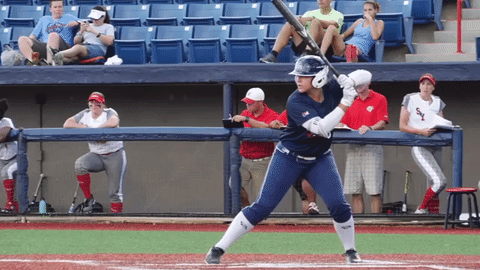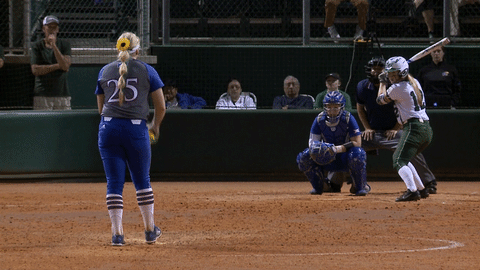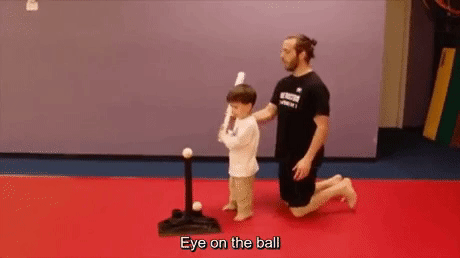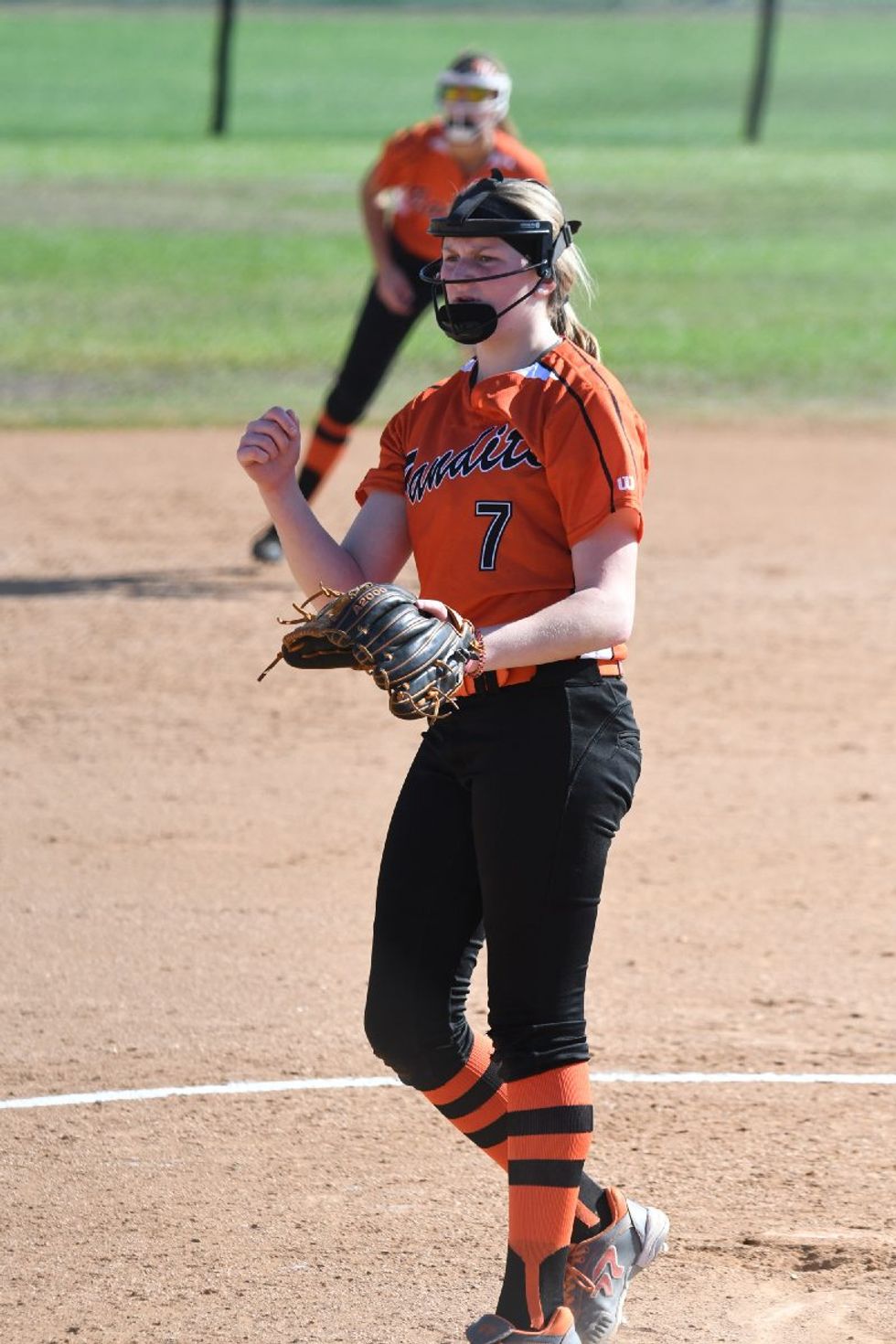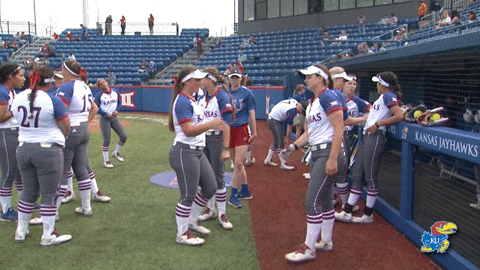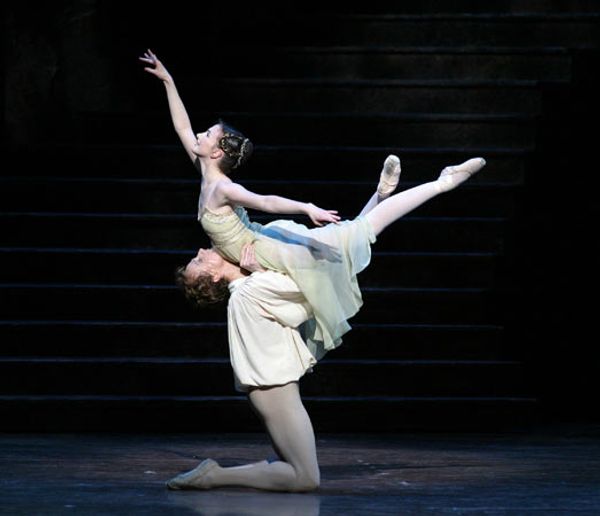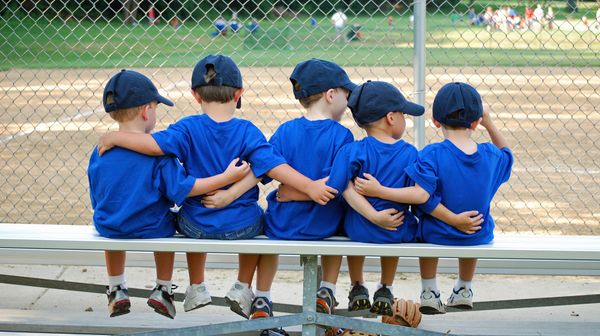Softball leads all NCAA Division 1 sports in the percentage and number of athletes verbally committing to their respective schools before 9th grade.
I personally began my recruiting process at the beginning of 9th grade. I wrote hundreds of e-mails, attended several camps, and went on several unofficial visits.
I remember towards the end of my sophomore year I started to hear more and more about girls 'committing' to schools who were my age occasionally, but most of the time, way younger than me.
The pressure to collect offers built up fast and soon all my dad and I could talk about was if this coach had responded to me or if I'd call this coach or if I was ready to go this showcase tournament or visit this campus.
By the start of my junior year, after undergoing wrist surgery early in my sophomore year, I hadn't yet 'committed' and I was pretty worried I wouldn't play softball again after high school.
Luckily, a school I'd been in contact with for a while, George Washington University, who had seen me at a Head Start camp (a recruiting camps designed for athletes with high GPAs looking for schools with elite academics), sent their head coach to one of my games at a huge annual showcase tournament in Orlando, Florida called the Diamond 9 Classic.
I was fortunate enough to play great in front of her and a few weeks later, while on an unofficial visit she offered me a scholarship. I was verbally committed there for seven months before, in the case of 42% of all student-athletes committing before their junior year, the head coach of my university left the school.
At the beginning of my senior year, the incoming coach told all the prior recruits that their verbal commitment meant nothing and that all scholarship offers were now off the table. And it's true, a verbal commitment means, technically, almost nothing.
The NCAA doesn’t recognize any verbal commitments as binding. Nothing is actually considered official until an athlete signs a national letter of intent (an NLI) to play for a specific collegiate program, which a PSA can't do until their senior year of high school. So the pressure to 'commit' early still doesn't guarantee an athlete a spot on the team, whether she 'commits' as a middle school or the day before signing day.
Anyways, after that, in my sophomore year, if I had been nervous about not being recruited, in my senior year I was fully convinced I'd never get another chance. I made some last-ditch effort calls and texts (which you're allowed to do at that stage in the process) and luckily, Fordham reached out and I wound up, in December of my senior year, re-committing to a school.
My roommate committed to Fordham in 8th grade, almost five years earlier, and yet on the first day, we walked onto the same practice field for the same university. It was, in fact, not too late.
At the 2017 NCFA Las Vegas Convention, an abundance of Division 1 and NCAA committees and coaches met to discuss improvements and steps needed in order to solve the problem of early recruiting.
The Student-Athlete Experience Committee (SAEC) and Student-Athlete Advisory Committee utilized feedback from thousands of current student-athletes, athletic directors, compliance administrators, and coaches to develop several proposed changes to the current recruiting model.
The changes resemble a similar structure of the lacrosse recruiting rules which the IWLCA and IMLCA (Intercollegiate Women's and Men's Lacrosse Associations) established in 2015. The proposed amendments are as follows:
- All Official visits, which are paid for by the school, are prohibited until September 1st of the prospective student athlete's (PSA's) junior year. This will align with all other aspects of the recruiting process meaning that…
- All recruiting communication and major steps will begin on one singular start date. This would hopefully fall on September 1st of the athlete's junior year.
- With all aspects of recruiting beginning on the same (later) start date, this will also prohibit college coaches from talking to any prospects attending on-campus camps or clinics until September 1st of their junior year.
The collegiate coaches voted in favor of these amendments 200-3 at the National Convention because of how this 'lacrosse' model is designed to benefit all parties involved in the recruiting process.Coaches already have enough pressure thinking about the next incoming classes replacing their graduating seniors, but having to worry about classes four to six years ahead takes away significant energy from a more productive and relevant use of time with their current team.
They also have to hope that their young recruit continues to develop as she ages instead of plateauing (which can happen often if a kid gets complacent after verballing to a school).
They're also relying on a young girl to have her heart dead set on one school before they've really had a chance to explore and that can be dangerous considering 38% of student-athletes who commit before or during their sophomore year ended up not enrolling to the school they verbally committed to.
The coaches participate in the early recruiting chaos, not because they want to, but because they must out of necessity in order to stay competitive. With the proposed rule changes, they would no longer have to battle for young PSAs, who over 60% of have "no idea" of an intended major at the time of commitment.
The later recruiting would also obviously benefit the student-athlete and their family. Parents would benefit because their stress and angst over not getting their child recruited 'yet' would be relieved. Additionally, their relationship with their kid would not have to suffer the strain that the pressures of getting recruited at such a young age and cause.
For the athlete, it would alleviate the immense stress that they must face at astonishingly young and unhealthy ages. Players can focus on developing their fundamentals and enjoying the game more instead of worrying about racking up offers before they've begun their first high school semester.
The athlete would also have more time to specify what they're really looking for in a university instead of just rashly agreeing to the first school that offers them that they recognize. 43% of D1 softball players are in contact with college coaches before 9th grade, and almost half of all D1 commits occur during or prior to the PSA's sophomore year. This is before current rules even permit an official visit.
Delaying the start of the process would also align athletic recruiting more closely with a regular student's academic quest to choose their eventual school. This would result in a much-needed emphasis on the 'student' part of the phrase 'student-athlete'. The NCAA conducted a survey of over 15,000 recruited student-athletes in which the vast majority reported that the later their recruiting began, the more positive their experience was.
Not even halfway through her seventh-grade year, Keagan Rothrock, a top recruit for the graduating class of 2023 (yes, you read that right) out of Indiana, committed to University of Florida in October of 2017. By the time she made her decision, Rothrock had already visited Auburn, Missouri, Notre Dame, and Oklahoma as well, all before turning thirteen years old.
Yes, girls mature earlier and faster than boys, but a pre-teen still doesn't seem qualified to make such a huge life decision already. When asked why she chose Florida over other schools, the young pitcher responded, "I just knew that that's the school I wanted to go to." Nothing more; nothing less: she just "knew". Rothrock is undecided on a major and hasn't taken a high school class yet.
Keagan's example isn't out of the ordinary either. She's on an elite travel team, The Beverly Bandits, composed entirely of other middle school girls and freshmen already committed to top D1 programs like herself.
Probability would suggest that 4 out of 10 players on that team won't end up playing where they think they're going now. And that's not even taking into consideration how many of them will transfer after their freshmen year of college doesn't go as they've expected since they were 12 or 13.
There's a good chance the proposed early recruiting guidelines will go into effect within the next year or so, if not sooner. And if and when it does, programs will have to quickly decide what to do about their current young commits or recruits, and at first, the whole system may fall into a state of disarray.
However, in time, almost everyone involved agrees that a later recruiting process will be significantly better for the student-athletes, their families, and the coaches. It's time for seventh graders to stop being recruited. It's time for a change.
Sources Used/ For more information:
Early Recruiting Action Center (NFCA)
D1 Council Introduces New Recruiting Proposal (NCAA)
Coaches in Support of Ending Early Recruiting (SportsDay)
Pros of Ending Early Recruiting (Fastpitch News)


